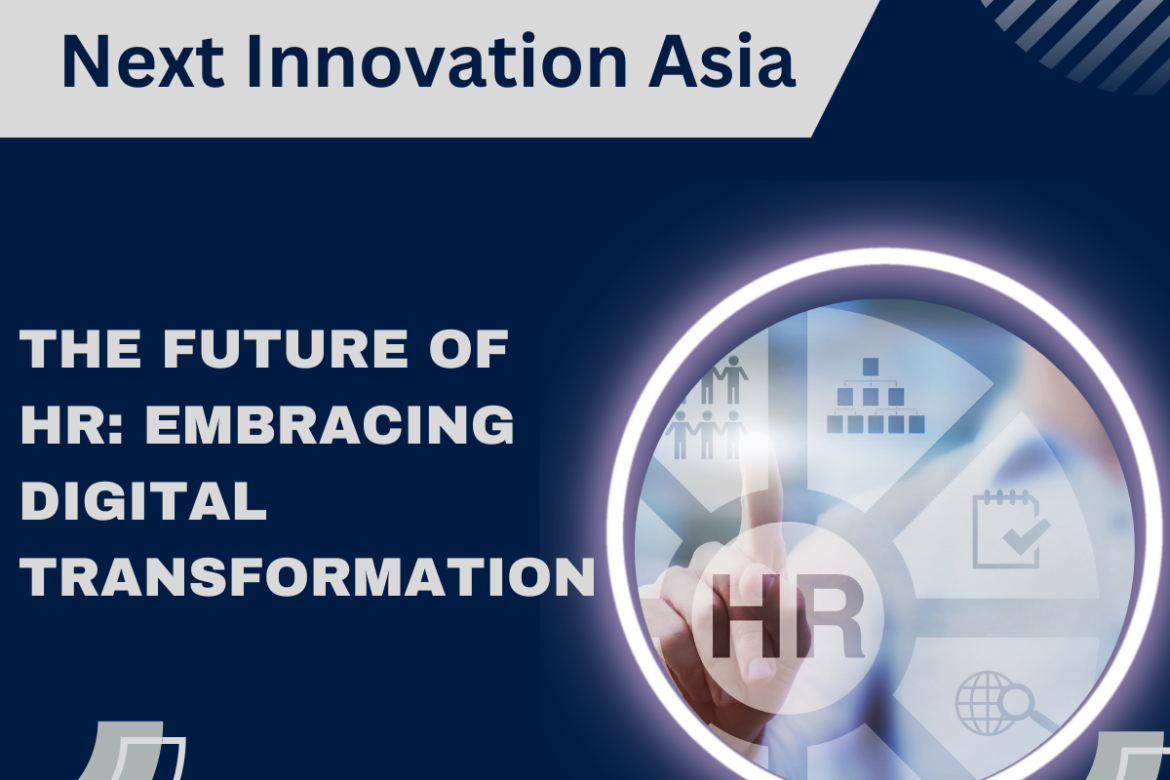The future of HR is indeed embracing digital transformation, and this trend has been gaining momentum over the past few years. Digital transformation refers to the integration of digital technology into all aspects of business operations, and HR is no exception. Here are some key areas where digital transformation is shaping the future of HR:
- Automation and Efficiency: HR departments are leveraging automation tools and technologies to streamline processes and increase efficiency. Tasks such as payroll processing, employee onboarding, benefits administration, and leave management can be automated, reducing manual effort and human error.
- Data-Driven Decision Making: Digital transformation enables HR to collect and analyze vast amounts of employee data, including performance metrics, engagement surveys, and feedback. Advanced analytics and machine learning algorithms can provide insights into trends, identify areas for improvement, and support data-driven decision making in areas like talent acquisition, retention, and succession planning.
- Talent Acquisition and Recruitment: Digital platforms and tools are transforming the way organizations attract and hire talent. Companies are leveraging artificial intelligence (AI) for resume screening, chatbots for initial candidate interactions, and video interviewing platforms to streamline the recruitment process. Social media and online professional networks have also become crucial sources for identifying and engaging with potential candidates.
- Employee Experience and Engagement: Digital solutions play a vital role in enhancing the employee experience and promoting engagement. HR teams are adopting employee self-service portals, mobile apps, and collaboration platforms to provide personalized access to HR services, facilitate communication, and foster a sense of community. Feedback systems and pulse surveys help gather real-time insights, allowing organizations to address concerns promptly and improve overall employee satisfaction.
- Learning and Development: Digital transformation has revolutionized learning and development initiatives within organizations. E-learning platforms, virtual classrooms, and micro-learning modules enable employees to access training materials anytime, anywhere. AI-powered systems can personalize learning paths, recommend relevant courses, and track progress, making professional development more tailored and efficient.
- HR Analytics and Predictive Modeling: With the abundance of HR data, analytics tools are being used to predict future trends and outcomes. Predictive modeling can help HR departments forecast employee attrition, identify flight risks, and determine optimal compensation and benefits strategies. This proactive approach allows organizations to take preventive measures and make informed decisions.
- Remote and Flexible Work: The COVID-19 pandemic accelerated the adoption of remote work and flexible work arrangements. HR departments had to quickly adapt to new ways of managing remote teams and providing support. Digital tools like video conferencing, collaboration software, and project management platforms became essential for maintaining productivity and ensuring effective communication across distributed teams.
- HR Analytics for Workforce Planning: HR analytics is playing a crucial role in strategic workforce planning. By analyzing historical data and trends, organizations can identify skill gaps, anticipate future talent needs, and develop succession plans. HR analytics also helps in optimizing workforce allocation, determining the most effective team structures, and identifying opportunities for upskilling or reskilling employees.
- AI-powered Chatbots and Virtual Assistants: Chatbots and virtual assistants are increasingly being used in HR to provide quick and personalized responses to employee queries. These AI-powered tools can handle routine inquiries related to benefits, policies, leave balances, and other HR-related information. By automating these interactions, HR professionals can focus on more complex and strategic tasks.
- Performance Management and Feedback: Digital transformation is revolutionizing traditional performance management processes. Real-time feedback platforms, continuous performance evaluation tools, and goal-setting software enable ongoing performance discussions and help align individual goals with organizational objectives. Performance data collected throughout the year can be analyzed to provide more accurate and meaningful performance assessments.
- Enhanced Employee Well-being: Digital tools and platforms are being leveraged to support employee well-being and mental health. Wellness apps, meditation platforms, and online fitness programs provide resources and support to employees, irrespective of their location. HR can also utilize sentiment analysis and employee sentiment surveys to proactively address well-being concerns and foster a healthy work environment.
- AI-enabled HR Assistants: AI-powered virtual HR assistants can assist employees with various HR tasks and provide personalized recommendations. These assistants can help with benefits selection, career path planning, learning opportunities, and provide guidance on HR policies and procedures. They leverage natural language processing and machine learning to understand employee queries and deliver relevant information.
- Agile Workforce and Gig Economy: Digital transformation is facilitating the rise of the gig economy and remote work arrangements. HR departments need to adapt to managing a mix of permanent employees, contractors, freelancers, and remote workers. Digital platforms for talent management, project management, and collaboration enable HR to effectively engage and manage a diverse and agile workforce.
- Ethical Use of AI and Data: As AI and data analytics become more prevalent in HR, ensuring ethical use of these technologies is paramount. HR professionals need to be mindful of biases in data collection and algorithms, maintain data privacy, and ensure transparency in decision-making processes. Establishing ethical guidelines and regularly auditing AI systems helps mitigate potential risks and ensure fairness.
- Continuous Learning and Upskilling: Digital transformation necessitates a culture of continuous learning and upskilling. HR departments play a critical role in identifying skill gaps and implementing learning programs that equip employees with the necessary competencies for the digital age. Learning platforms, online courses, and digital badges are valuable tools for promoting continuous learning and career development.
Next Innovation Asia

